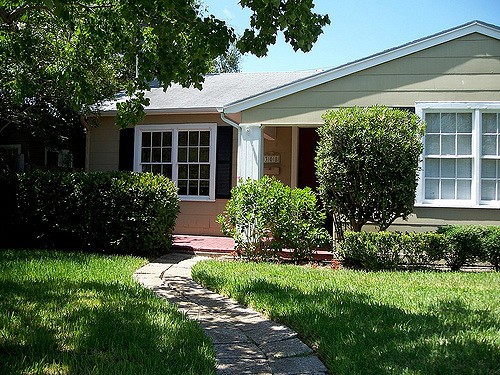Can You Rent to Own with No Deposit?
August 10, 2018 by Marty Orefice | Contracts, Rent to Own

Security deposits are not an inherent part of the rent to own arrangement. However, a seller might ask for one as a means of protecting their investment.
The security deposits cover the cost of damages incurred on a property throughout your stay should you choose not to purchase the home. Should there be no damages, you’d get the money back. If there are damages, the seller could use your security deposit to cover the cost of the repairs.
This is different than your option fee because your option fee does not cover the cost of damages. It covers the missed opportunity the seller had to sell the home outright or offer a different buyer the lease-option should you decide not to buy. The option fee helps the seller cover expenses while they search for a new person to purchase the property.
Should Sellers Charge a Security Deposit?
Technically, lease-option sellers and buyers have a landlord-tenant relationship until the buyer purchases the home. Most landlord-tenant relationships involve security deposits to protect the landlord from the costs of damages beyond normal wear and tear.
However, in reality, this situation is different. The landlord is aware that at the beginning of the lease, the tenant is already coughing up a large sum of money to retain the option to purchase the property. Option fees range between 2.5 percent and 5 percent of the cost of the home – which is enough money to make a down payment on a home with an FHA loan.
While there are plenty of good reasons to rent to own, when a buyer needs to invest too much money before actually buying the home, it's less appealing.
When you decide whether to charge a security deposit, ask yourself these questions:
Is the security deposit a deal breaker for you?
Meaning, if the tenant insists that they cannot or will not pay the security deposit, are you willing to let them walk away?
Asking the tenant to contribute more than an option fee can make the rent to own deal seem less like a deal and more like a drain on savings.
A buyer might decide to commit to renting for another year. At that point, the buyer can likely qualify for financing to buy a home outright. Or the buyer might look for a cheaper home they can purchase today. The buyer might even look for a different rent to own deal that doesn’t require a security deposit.
Before you dig your heels into the ground over the security deposit, ensure that it is important to you.
Can you trust the buyer to keep the property in good condition?
How much research have you done into this buyer? Have you gotten references from past landlords? Where they able to return the security deposit check to this person? If they were, this person might be trustworthy enough not to pay a security deposit.
Then again, this person had an incentive to take care of the unit in order to get the security deposit returned. They’ve been successful with security deposits in the past, meaning it will be successful again.
What else do you know about this person that would indicate their responsibility and trustworthiness?
If the buyer is fighting you on the security deposit, make sure you’ve considered their history as a possible support for their wishes. You might afford leniency to someone with a record of good tenancy considering they're paying a large option fee.
How Much Can a Seller Charge for Security Deposit?
How much you can charge for a security deposit varies based on two factors.
- The size of the home you’re lease-optioning.
- The potential cost of damage a tenant can cause to your property.
In some states, there is a maximum amount that landlords can charge for a security deposit. For example, as per California state law, the security deposit can be no more than three months of rent for a furnished apartment and two months of rent for an unfurnished apartment. The law classifies last month’s rent, pet deposits and key money under the umbrella of a security deposit too. It’s important to read your state’s landlord-tenant laws to ensure you are charging a legal amount.
Security deposits typically range from half a month’s rent to two months rent. Though, of course, there are some outliers. And some landlords don't charge security deposits at all.
Closing Ideas on Rent to Own Security Deposits
Security deposits for rent to own deals area contingency plan. You would charge a security deposit in case the deal doesn’t go through and the tenant caused damage to the unit.
Remember, you’re hoping the buyer does purchase the home at the end of the lease, in which case, you won’t need to worry about the condition of your property.
